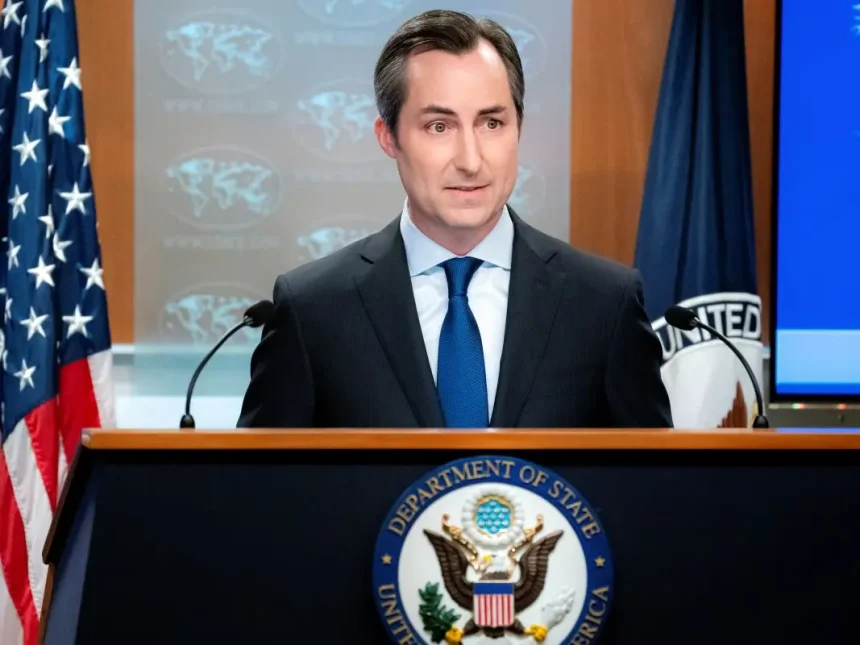The United States has expressed its “serious concern” over the diplomatic crisis in the Horn of Africa, following the signing of a memorandum of understanding (MoU) between Ethiopia and the breakaway region of Somaliland that grants Ethiopia access to the Red Sea.
The MoU, signed by Ethiopian Prime Minister Abiy Ahmed and Somaliland President Muse Bihi Abdi on Monday, was denounced by Somalia as an “aggression” and a violation of its sovereignty and territorial integrity. Somalia also summoned its ambassador to Ethiopia for consultations over the matter.
In a statement on Tuesday, State Department Spokesperson Matthew Miller said the US was alarmed by the spike in tensions in the region and urged all parties to engage in diplomatic dialogue.
“We did see those reports, we are concerned by them, we join other partners in expressing our serious concern as well about the resulting spike in tensions in the Horn of Africa, we urge all stakeholders to engage in diplomatic dialogue, and the United States recognizes the sovereignty and the territorial integrity of the federal republic of Somalia within its 1960 borders,” Miller said.
The US, which is a major donor and security partner for both Ethiopia and Somalia and the US statement came as a boost for Somalia, which has been locked in a long-standing dispute with Somaliland over its status and borders.
However, the deal has also raised concerns over the potential impact on the stability and security of the Horn of Africa, which is already facing multiple challenges, such as the ongoing conflict in Ethiopia’s Tigray region, the border dispute between Ethiopia and Sudan, and the threat of the militant group al-Shabab in Somalia.
Some analysts have warned that the Ethiopia-Somaliland deal could further strain the relations between Ethiopia and Somalia, which have already been tense over the disputed maritime boundary and the role of Ethiopia in Somalia’s internal politics.
Somalia has accused Ethiopia of interfering in its electoral process and supporting the leaders of some federal member states who have opposed the central government. Ethiopia has denied the allegations and said it respects Somalia’s sovereignty and supports its unity.
The Ethiopia-Somaliland deal could also affect the prospects of dialogue and reconciliation between Somalia and Somaliland, which have been stalled for years. The African Union has been mediating between the two sides, but the talks have made little progress.





